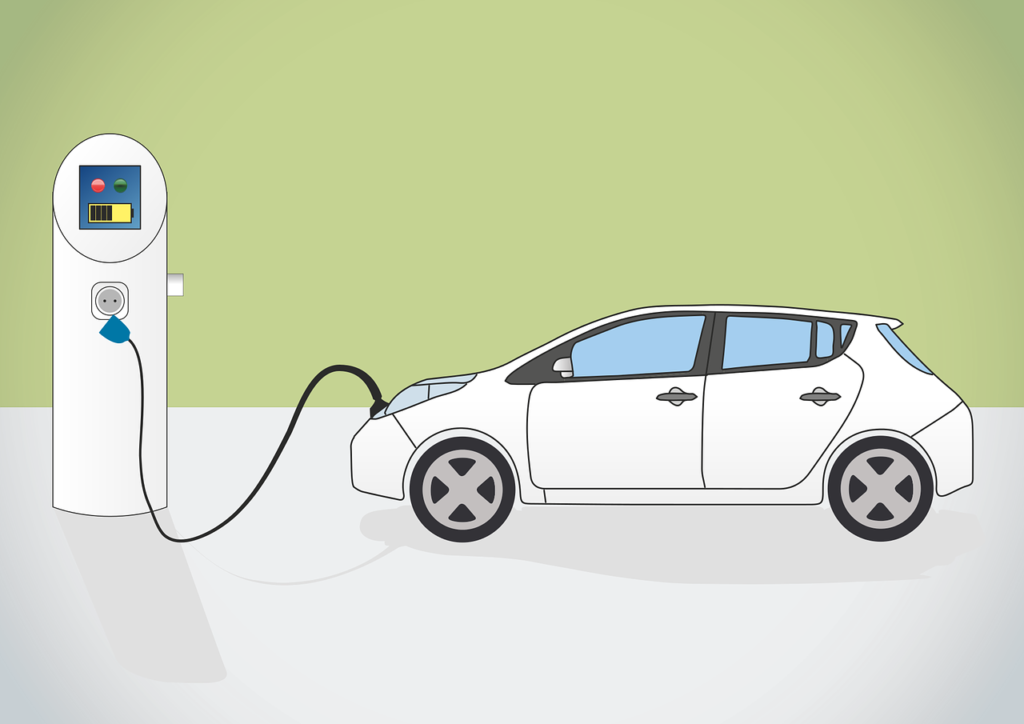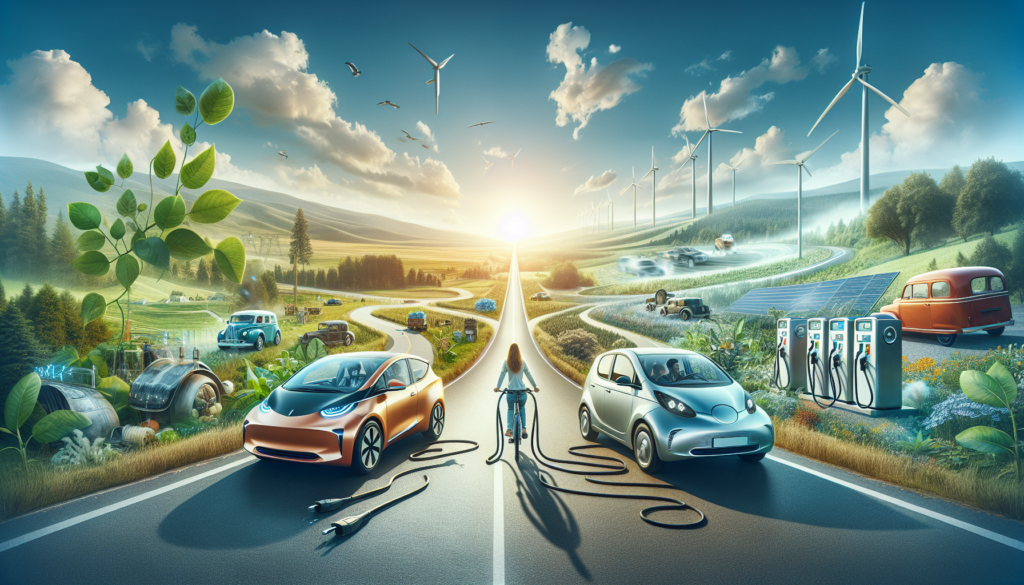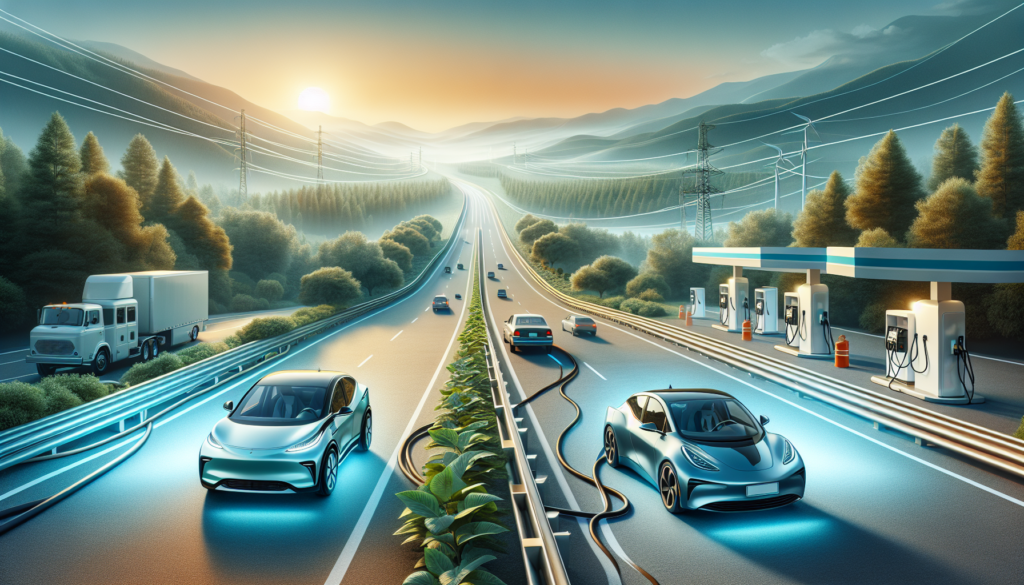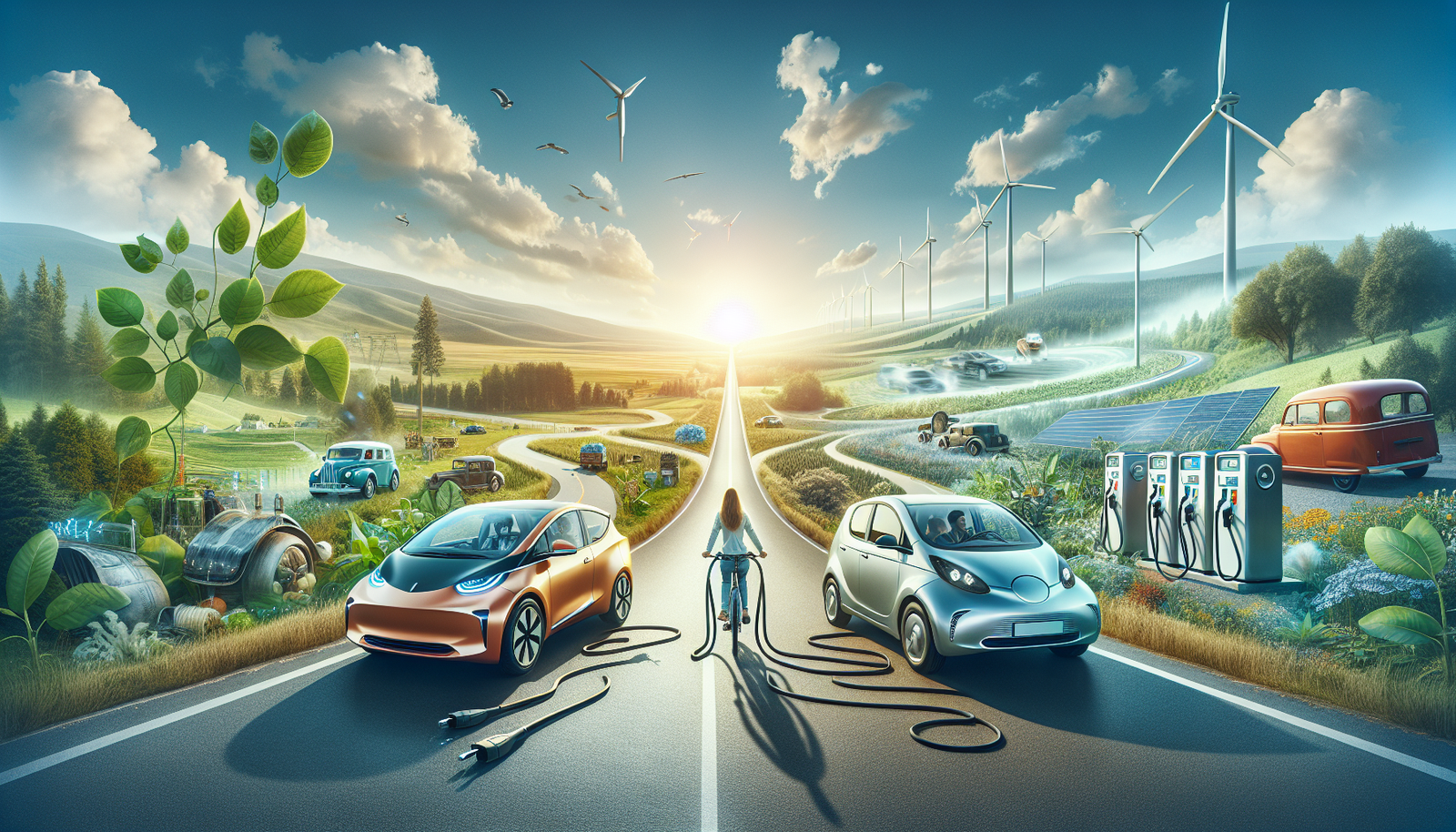You’re about to embark on an epic adventure, a long road trip that will take you across stunning landscapes and through vibrant cities. As you load up your electric vehicle with all the essentials, you can’t help but wonder how this journey will differ from the ones you’ve taken in traditional gasoline cars. Will the charging stations be as conveniently located as gas stations? Will you need to plan your route more carefully to ensure you have enough battery power? In this article, we’ll explore the exciting world of long road trips in electric vehicles and compare them to their gasoline counterparts, giving you all the information you need to make the most of your electrifying journey.
Cost
Initial Cost
When it comes to cost, the initial price of an electric vehicle (EV) tends to be higher compared to a traditional gasoline car. This is mainly due to the expensive battery technology used in EVs. However, with advancements in technology and increased production, the prices of EVs have been gradually decreasing. Additionally, governments and various incentives are being provided to promote the adoption of electric vehicles, which can further offset the initial cost.
Fuel Cost
One major advantage of electric vehicles is the significantly lower cost of fuel compared to gasoline cars. Charging an EV can be much cheaper than refueling a gasoline car, especially if you have access to discounted or free charging options. Furthermore, the cost of electricity is generally more stable and predictable compared to the constantly fluctuating prices of gasoline. Over time, the savings on fuel costs can offset the higher initial cost of an electric vehicle.
Maintenance Cost
Electric vehicles generally have lower maintenance costs compared to gasoline cars. This is primarily because EVs have fewer moving parts and require less regular maintenance. For example, EVs don’t need oil changes, spark plug replacements, or regular transmission maintenance. Additionally, regenerative braking in EVs helps extend the life of brake pads, resulting in reduced brake maintenance costs. While battery maintenance and replacement costs may be a concern for some, advancements in battery technology are improving both performance and longevity.
Range
Electric Vehicle Range
One of the main concerns for potential EV owners is the range anxiety, meaning the fear of running out of charge during a long road trip. However, the range of electric vehicles has improved significantly in recent years. Many modern electric cars offer ranges that can comfortably cover daily commuting and even longer trips with the availability of charging infrastructure along the way. High-end electric vehicles can often achieve ranges of 300 miles or more on a single charge, making them suitable for most long road trips.
Gasoline Vehicle Range
Gasoline cars have traditionally offered a longer range compared to electric vehicles, mainly due to the widespread availability of gas stations. With a gasoline vehicle, you have the flexibility to refuel at almost any gas station, allowing for uninterrupted long road trips. Gasoline cars can typically achieve ranges of 400-500 miles or more on a full tank, depending on the model and driving conditions. However, it’s important to note that the range of gasoline cars can vary significantly depending on factors such as fuel efficiency, driving style, and terrain.
Charging Infrastructure
Availability of Charging Stations
The availability of charging stations is a crucial factor to consider when planning a long road trip in an electric vehicle. The charging infrastructure for EVs has been rapidly expanding, with more charging stations being installed in major cities and along highways. Many countries have initiatives to increase the number of charging points, making it easier for EV owners to find places to charge their vehicles. However, it’s worth noting that the availability of charging stations can still be less widespread in rural or remote areas, which might require more careful planning for long-distance travel.
Charging Time
Charging time is another important aspect to consider when comparing electric vehicles to gasoline cars for long road trips. The charging time varies depending on the charging method and the electric vehicle itself. Level 1 charging, which uses a standard household outlet, is the slowest, typically taking several hours or even overnight to fully charge an EV. Level 2 charging, found in public charging stations and some home chargers, offers faster charging times, usually taking a few hours for a full charge. More advanced Level 3 DC Fast Charging, commonly available at highway rest stops, can provide a significant charge in a matter of minutes. The charging speed and convenience of Level 3 chargers make long road trips in electric vehicles more viable and practical.
Environmental Impact
Emissions
One of the primary advantages of electric vehicles over gasoline cars is their significantly lower emissions. Electric vehicles produce zero tailpipe emissions, meaning no harmful pollutants are released during operation. This has significant environmental benefits, contributing to improved air quality and reduced greenhouse gas emissions. On the other hand, traditional gasoline cars emit carbon dioxide and other pollutants that contribute to air pollution and climate change. By choosing an electric vehicle for long road trips, you can minimize your carbon footprint and contribute to a cleaner and more sustainable environment.
Renewable Energy Integration
The environmental impact of electric vehicles is further enhanced when they are charged using renewable energy sources such as solar or wind power. By utilizing clean energy for vehicle charging, the overall emissions associated with an electric vehicle can be significantly reduced. As renewable energy technologies continue to advance and become more accessible, the integration of electric vehicles with clean energy sources can greatly contribute to a greener and more sustainable future.
Performance
Acceleration
Electric vehicles have gained a reputation for their impressive acceleration capabilities. Electric motors deliver instant torque, providing quick and smooth acceleration from a standstill. This rapid acceleration can add to the overall excitement and enjoyment of driving an electric vehicle during long road trips. Gasoline cars, while still offering good acceleration in many cases, typically experience a slight delay in power delivery due to the nature of internal combustion engines.
Top Speed
When it comes to top speed, electric vehicles and gasoline cars can be relatively evenly matched. Many electric cars have top speeds comparable to their gasoline counterparts, allowing for comfortable highway driving during long road trips. While top speed may not be a significant factor for most drivers, it’s worth noting that electric vehicles can achieve impressive speeds without the noise and vibration associated with traditional combustion engines.
Handling
The handling characteristics of electric vehicles can vary depending on the specific model and design. However, in general, electric vehicles offer excellent handling due to their lower center of gravity and balanced weight distribution. The placement of heavy batteries low in the chassis contributes to improved stability and cornering performance. With quick and precise steering response, electric vehicles provide a smooth and enjoyable driving experience during long road trips.
Convenience
Refueling
One notable convenience of gasoline cars is the ease and speed of refueling. With a vast network of gas stations available, it’s relatively effortless to find a place to refuel during a long road trip. Gasoline cars can be filled up quickly, allowing for shorter stops and less time spent on refueling compared to charging an electric vehicle. However, it’s essential to consider the convenience of charging an electric vehicle at home, where you can start each day with a full charge and avoid the need for frequent refueling during the trip.
Trip Planning
Long road trips in electric vehicles require more careful trip planning compared to gasoline cars. The range limitations of electric vehicles mean that it’s crucial to plan charging stops along the route, ensuring that charging infrastructure is available at strategic points. With the help of various electric vehicle trip planning tools and smartphone apps, it’s become easier to locate charging stations and plan longer journeys effectively. While trip planning for electric vehicles may require some additional effort, it can also be seen as a way to add adventure and explore new places during your road trip.
Availability of Gas Stations
One advantage of gasoline cars is the widespread availability of gas stations, particularly in urban areas and along major highways. Gas stations are easily accessible and offer a convenient refueling option for long road trips. However, it’s important to note that the infrastructure for electric vehicles is rapidly expanding, with more charging stations being installed in public locations and along popular travel routes. While the availability of charging stations may not be as extensive as gas stations, it is continually improving and becoming more dependable, making long road trips in electric vehicles increasingly viable and convenient.

This image is property of pixabay.com.
Safety
Vehicle Safety
Electric vehicles often prioritize safety as a key feature. Electric car manufacturers place a strong emphasis on vehicle safety, incorporating advanced safety technologies and designing robust structures to protect occupants in the event of a collision. Additionally, the placement of heavy battery packs in electric vehicles contributes to a lower center of gravity, enhancing stability and reducing the risk of rollovers. Many electric vehicles also offer advanced driver-assistance systems, such as collision warning and emergency braking, which further enhance safety during long road trips.
Fire Risk
Concerns about the fire risk associated with electric vehicles have been raised in the past. While it is true that lithium-ion batteries used in EVs can potentially catch fire in rare instances, the overall risk is extremely low. Electric vehicles undergo rigorous testing and meet stringent safety standards to ensure the prevention and containment of fire incidents. In fact, compared to the risk of gasoline cars catching fire in accidents and during refueling, electric vehicles have proven to be as safe, if not safer.
Reliability
Battery Life
Battery life is a significant consideration for electric vehicles, as it directly impacts the range and overall reliability of the vehicle. However, modern EVs are equipped with advanced battery management systems that optimize charging and discharge cycles, helping to extend battery life. Additionally, many electric car manufacturers offer lengthy warranties on their battery systems, providing peace of mind for owners. With proper use and maintenance, the battery life of electric vehicles is generally expected to last for the average lifespan of the vehicle.
Overall Vehicle Reliability
Electric vehicles are known for their reliability due to the fewer moving parts and simplified mechanical systems compared to gasoline cars. Without complex internal combustion engines, EVs have reduced maintenance requirements and fewer components that can fail or wear out over time. While any vehicle can experience mechanical issues, electric vehicles have proven to be reliable transportation options for long road trips, often requiring less frequent service and repairs.

Comfort
Cabin Noise
One advantage of electric vehicles is their quiet and smooth operation. Electric motors produce significantly less noise compared to internal combustion engines, resulting in a quieter cabin environment. This lack of engine noise can contribute to a more peaceful and pleasant driving experience during long road trips, allowing for easier conversations and enjoyment of the surroundings. Furthermore, diminished cabin noise can be particularly appealing for those seeking a serene and relaxing journey.
Ride Comfort
Electric vehicles often offer a comfortable ride due to their smoother power delivery and advanced suspension systems. The instant torque delivery of electric motors provides seamless acceleration, resulting in a more enjoyable and comfortable driving experience. Additionally, electric vehicles tend to have well-tuned suspension systems that absorb road imperfections, further enhancing ride comfort during long road trips.
Technology
Infotainment Systems
Electric vehicles often come equipped with advanced and user-friendly infotainment systems. Touchscreen interfaces, smartphone integration, and voice recognition technology are commonly incorporated into electric cars, allowing for seamless connectivity and entertainment options during long road trips. Additionally, many electric vehicles offer features such as remote vehicle monitoring and charging status updates through dedicated mobile apps, providing convenience and peace of mind to owners.
Autonomous Features
Electric vehicle manufacturers have been at the forefront of autonomous driving technology. Many electric cars are equipped with advanced driver-assistance systems that offer features such as adaptive cruise control, lane-keeping assist, and automated parking. These autonomous features can enhance safety, reduce driver fatigue during long road trips, and offer a glimpse into the future of fully autonomous driving.
In conclusion, long road trips in electric vehicles have their own set of advantages and considerations compared to traditional gasoline cars. While electric vehicles may have higher initial costs and require careful trip planning, they offer lower fuel costs, reduced emissions, impressive performance, and increasing convenience through the expanding charging infrastructure. Electric vehicles also excel in safety, reliability, comfort, and are at the forefront of automotive technology. As the electric vehicle market continues to grow and evolve, long road trips in electric vehicles are becoming increasingly viable and enjoyable options for environmentally conscious and technologically savvy drivers.


